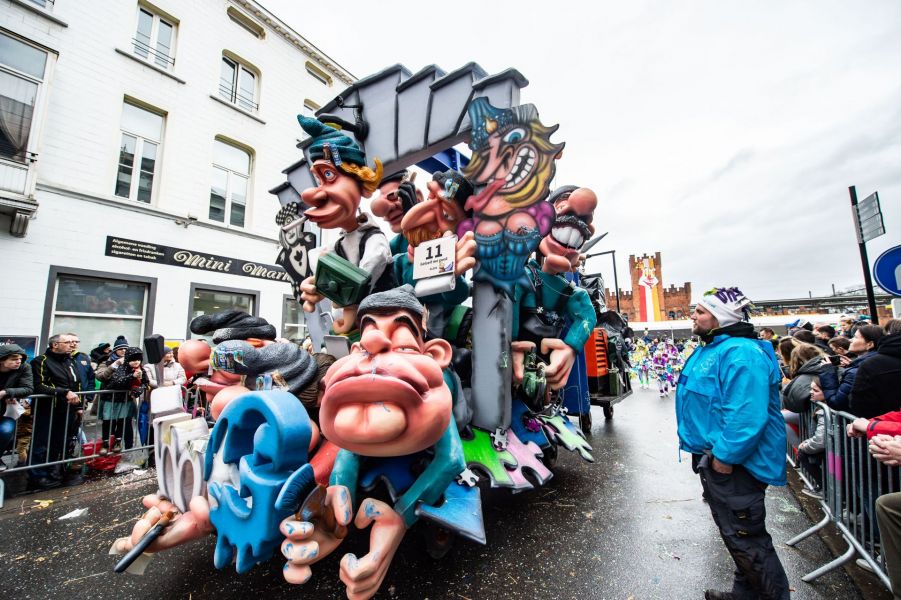Three professors who are specialised in anti-Semitism at the universities of Antwerp, Ghent and Leuven, have asked media to be careful with showing images of floats with Jewish caricatures.
"In Hitler's time, these caricatures were used to change people's opinions," said Klaas Smelik on Tuesday morning on Radio 1. He is a professor at the University of Ghent, and wrote an opinion piece with two colleagues, Vivan Liska (University of Antwerp) and Didier Pollefeyt (KU Leuven), about the use of the caricatures in De Morgen.
Aalst Carnival, which asked to be withdrawn from UNESCO's Representative List of the Intangible Cultural Heritage of Humanity in December 2019 because it refused to remove floats with anti-Semitics caricatures from its parade, will start again on 23 February.
The Aalst Carnival societies had made it clear that these caricatures would be on display again in the coming edition, "to criticise the attempted censorship," reports VRT.
Related News
- Israel welcomes Aalst carnival removal from UNESCO list
- Bart De Wever calls Jewish caricatures at Aalst Carnival 'disrespectful'
- Aalst caricatures of Orthodox Jews on pots of gold found to not be illegal in 'specific' carnival context
- Aalst mayor to defend city carnival against UNESCO's anti-Semitism accusations
- Aalst Carnival makes fun of Jews again, despite anti-Semitism accusations over previous edition
- Aalst removes Carnival from UNESCO World Heritage list
"We do not want to censor anything, but we do want to point out the danger of spreading these kinds of anti-Jewish caricatures. In the past, it has become clear what kind of influence these can have on the opinion of ordinary people," said Smelik.
"In the nineteenth century, but especially in the time of the Third Reich of Hitler Germany, this kind of caricature became widespread in order to change people's mentality, and to teach that the Jews are something bad," Smelik said.
"Spreading these images now works in the same way as before. People get a stereotypical image of Jews, with their noses and the like. But also with a money box, as the ones who are in financial control. And with the aim of exploiting humanity as much as possible," he added.
As the caricatures will be part of Aalst Carnival one way or another, the professors directed their request to the media, to not show the images of the float, or to show them in a more nuanced way. "Placed in the historical context of anti-Semitism. The point is that if you show these caricatures without saying what the consequences have been for the Jewish people in the past, and in the present, you are unintentionally spreading anti-Jewish propaganda," said Smelik.
Maïthé Chini
The Brussels Times

